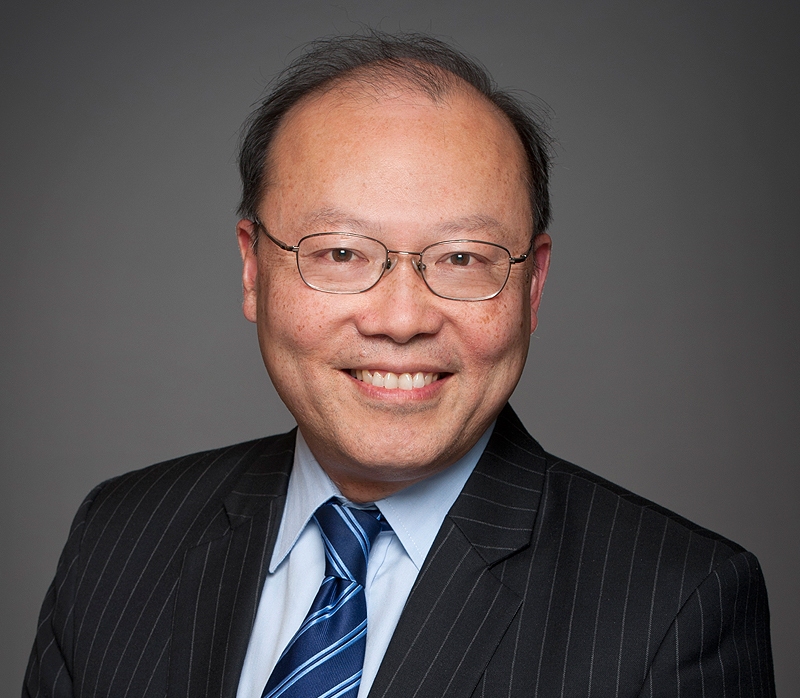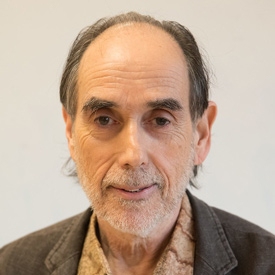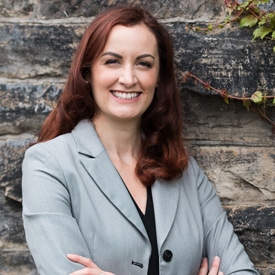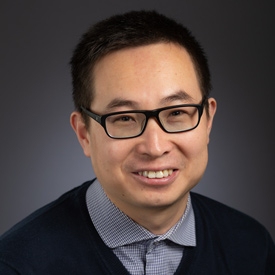Program
| Saturday, April 13, 2019 National Arts Centre, Ottawa (Morning Sessions Concurrent to Toronto Ottawa Heart Summit Program) | ||
|---|---|---|
| Time | Session | Speaker(s) |
7:00 – 8:00 a.m. | Registration and Breakfast | |
| 8:00 a.m. | Welcome Messages
| Dr. Sylvain CharbonneauVP, Research University of Ottawa
Dr. Thierry MesanaCEO & President University of Ottawa Heart Institute |
| 8:15 a.m. | Setting the Stage | Dr. Wojtek MichalowskiVice-Dean (Research) Professor of health Informatics Telfer School of Management University of Ottawa |
| 8:25 a.m. | Opening Address: Understanding the Role of Artificial Intelligence in Health Care | Dr. Henry LiebermanResearch Scientist Computer Science and Artificial Intelligence Lab (CSAIL) Massachusetts Institute of Technology (MIT) |
8:50 - 10:10 a.m. | Session 1: Advances in Artificial Intelligence (AI) and Big Data Analytics | |
| 8:50 a.m. | Deep Learning for Health Data Analytics | Dr. Yifeng LiResearch Officer Scientific Data Mining, Digital Technologies Research Centre National Research Council of Canada |
| 9:10 a.m. | Machine Learning for Prediction and Decision Support in Medical Applications | Dr. Doina Precup Associate Professor School of Computer Science McGill University |
| 9:30 a.m. | Active Learning Q&A with Panel | |
9:50 a.m. | Health Break | |
10:10 a.m. - 12:10 p.m. | Session 2: Big Data in Basic Science | |
| 10:10 a.m. | The Coming of Age of Microfluidics: Connecting Algorithms and Foundations of Chip Design to Biochemistry and the Life Sciences | Prof. Tsung-Yi HoDepartment of Computer Science National Tsing Hua University |
| 10:30 a.m. | Single-cell RNA Sequencing Approach Identifying Self-Renewing Resident Cardiac Macrophages in Heart Failure | Dr. Slava Epelman Scientist Toronto General Hospital Research Institute |
| 10:50 a.m. | Fishing Out Genetic Clues to How the Heart Develops | Dr. Ian Scott Senior Scientist Developmental & Stem Cell Biology Associate Professor Department of Molecular Genetics University of Toronto |
| 11:10 a.m. | The Use of Large Genomic Datasets | Dr. Ruth McPherson Merck Frost Canada Chair in Atherosclerosis Research Director, Ruddy Canadian Cardiovascular Genetics Centre Director, Atherogenomics Laboratory and Lipid Clinic University of Ottawa Heart Institute |
| 11:30 a.m. | Active Learning Q&A with Panel | |
11:50 - 1:10 p.m. | Lunch | |
| 12:15 - 12:55 p.m. | Trainee Mentorship and Networking Event | |
Poster Judging (scheduled at 4:00 pm Friday, April 12th, Canada Room, NAC) | ||
1:10 p.m. - 2:50 p.m | Session 3: Big Data in Clinical Medicine | |
| 1:10 p.m. | The Past, Present and Future of Risk Prediction for Cardiovascular Disease | Dr. Douglas ManuelCo-Director Ottawa ICES Research Centre |
| 1:30 p.m. | Precision Medicine for Childhood Heart Disease | Dr. Seema MitalHead, Cardiovascular Research
|
| 1:50 p.m. | Analysis of Coronary Artery Bifurcation using Taiwan Cardiovascular AI Consortium Database: Feasibility and clinical implication | Dr. Wen-Jeng LeeDepartment of Medical Imaging National Taiwan University Hospital |
| 2:10 p.m. | Machine Learning Approaches in Integrating into the Care of Patients with Heart and Vascular Diseases | Dr. Bo Wang Lead Artificial Intelligence Scientist Peter Munk Cardiac Centre Faculty Member, Vector Institute University of Toronto |
| 2:30 p.m. | Active Learning Q&A with Panel | |
2:45 p.m. | Health Break | |
3:05 p.m. | Rapid Fire Oral Presentations | |
3:30 p.m. - 5:20 p.m. | Session 4: Applications of AI and Big Data to Population Health and Health Systems | |
| 3:30 p.m. | Opportunities for Machine Learning to Improve the Health of Populations | Dr. Laura Rosella Principal Investigator & Scientific Director Population Health Analytics Laboratory University of Toronto Faculty Member, Vector Institute |
| 3:50 p.m. | Privacy and Security Related to the Rise of Big Data and AI | TBD Ethics, Law and Technology University of Ottawa |
| 4:10 p.m. | Health Canada’s Perspective on Digital Health and AI | Mr. Marc LamoureuxManager, Digital Health Division, Health Canada |
| 4:30 p.m. | Active Learning Q&A with Panel | |
4:50 p.m. | Trainee Award Ceremony | |
5:00 p.m. | Closing Remarks | |
Speakers

Dr. Slava Epelman

Dr. Slava Epelman MD, PhD is a Clinician-Scientist in the Department of Medicine, Division of Cardiology at the University Toronto, Peter Munk Cardiac Centre, a Scientist and the Cardiovascular Research Group lead at the Toronto General Research Institute, University Health Network, and the Loretta Rogers Chair in Immunobioengineering for the Ted Rogers Centre for Heart Research, University of Toronto. Dr. Epelman obtained his MD/PhD (in Immunology) from the University of Calgary and then did his medical residency/clinical fellowships at the Cleveland Clinic, Baylor College of Medicine and Washington University. He is a staff cardiologist in the Peter Munk Cardiac Centre at the Toronto General Hospital. His scientific interests are focused on the role macrophages in cardiac tissue injury and regeneration.

Dr. Peter Liu

Dr. Peter Liu is the Chief Scientific Officer and Vice President of Research at the University of Ottawa Heart Institute, and Professor of Medicine and Physiology at the University of Toronto and University of Ottawa. Previously he was the Director of the University of Toronto’s Heart & Stroke/Richard Lewar Centre of Excellence in CV Research, and subsequently the Scientific Director of CIHR’s Institute of Circulatory and Respiratory Health. He is a leading clinician-scientist with expertise in heart failure and biomarkers, having been the president of the International Society of Cardiomyopathy and Heart Failure, and also a member of the Science and Policy Council of the World Heart Federation. Dr. Liu is also a member of the International Cardiovascular Biomarker consortium, and participated on proteomic advisory committees of European Framework, NHLBI and HUPO (Human Proteomic Organization), and serves on AHA’s Scientific Councils and Guideline Panels for Systems Biology and Functional Genomics. He has published extensively in the field of heart failure, proteomics, and cardiac remodeling, in journals including Nature, Nature Medicine, New England Journal of Medicine, Lancet, Nature Comm, JCI, Circulation, etc. He has been recognized with the Research Achievement and Lifetime Achievement Awards of the Canadian CV Society, and research prizes from the Heart & Stroke Foundation and American College of Cardiology and CIHR. Most recently Dr. Liu has been recognized with the Achievement Award from the Canadian Heart Failure Society.

Dr. Seema Mital

Dr. Seema Mital is a Heart Failure and Transplant Cardiologist and Head of Cardiovascular Research at the Hospital for Sick Children, Toronto. She is Professor of Paediatrics at the University of Toronto and a Senior Scientist at the SickKids Research Institute. She is also the Heart and Stroke Foundation of Ontario Chair of Cardiovascular Science, and the Scientific Co-Lead of the Ted Rogers Centre for Heart Research.
Mital has a strong translational research program focused on genomics, pharmacogenomics and stem cell applications to model childhood heart disease and discover new therapies. She has extensive experience in the genetics/genomics of congenital heart disease and heart failure, personalized medicine and clinical trials. She established the SickKids Heart Centre Biobank, a multi-centre biorepository of children and adults with childhood onset heart disease for genomics research, one of the largest international repositories of its kind. She is the Scientific Co-lead of the Ted Rogers Centre for Heart Research Cardiac Precision Medicine Program established in November 2014.
Mital is a Principal Investigator of the CIHR-funded Canadian National Transplant Research Program, the NIH-funded Pediatric Heart Network, and leads the eRARE funded PROCEED network for Personalized Genomics in congenital heart disease. She serves on the Leadership Committee of the Functional Genomics and Translational Biology Council of the American Heart Association, and the Heart and Stroke Foundation Structural Heart Disease Council.

Dr. Ian Scott

Dr. Ian Scott is a Senior Scientist in Developmental and Stem Cell Biology at the Hospital for Sick Children and Associate Professor in the Department of Molecular Genetics at the University of Toronto.
He obtained his Bachelor’s degree in Science from Queen’s University, PhD in Molecular Genetics from the University of Toronto and did his Post Doctoral studies at the University of California, San Francisco under Dr. Didier Stainier.
Research in the Scott lab is focused on how cardiac fate is first established, and how the heart later grows and develops. Using the advantages of the zebrafish embryo, we employ genetic, embryological, live imaging and genomics approaches to study in real time the earliest events of cardiovascular development. Current research topics include: 1) role of Aplnr signalling in migration of cardiac progenitors to the heart-forming region; 2) transcriptional control of early cardiac fate and migration; 3) deciphering the gene regulatory networks that govern vertebrate heart development and regeneration; 4) regulation of second heart field (SHF) development; and 5) role of CCM3 signalling in cranial vasculature development.

Dr. Bo Wang

Bo Wang is the AI Lead Scientist for Peter Munk Cardiac Centre (PMCC) at University Health Network (UHN). He is also a faculty member of Vector Institute and an Assistant Professor at the Department of Medical Biophysics at University of Toronto. Dr. Wang obtained his PhD from the Department of Computer Science at Stanford University, and has extensive industrial research experience at many leading companies such as Illumina and Genentech.
His PhD work covers statistical methods for solving problems in computational biology with an emphasis on integrative cancer analysis and single-cell analysis. Dr. Wang’s long-term research goals aim to develop integrative and interpretable machine learning algorithms that can help clinicians with predictive models and decision support to tailor patients’ care to their unique clinical and genomic traits.

Mr. Marc Lamoureux

Mr. Marc Lamoureux obtained his B.Sc. in Biophysics from the University of Guelph and his M.Sc. in Medical Physics from Carleton University. Before joining Health Canada, he spent two years as a Medical Health Physicist with The Ottawa Hospital and has publications in disciplines such as chemistry, biochemistry, and medical imaging.
Marc has worked for Health Canada’s Medical Devices Bureau since 2011 specializing in the regulation of medical software, diagnostic imaging devices, and radiotherapy equipment. He is vice-chair of Canada’s Subcommittees for IEC TC62B and TC62C (Diagnostic Imaging and Radiotherapy) and is a co-chair of the International Medical Device Regulators Forum’s Cybersecurity Working Group. He is currently the lead for Health Canada’s Building Better Access to Digital Health Technologies initiative and is now the manager of the newly created Digital Health Division at the Medical Devices Bureau of Health Canada.

Henry Lieberman, PhD

Dr. Henry Lieberman is a Research Scientist at the MIT Computer Science and Artificial Intelligence Laboratory (CSAIL). His interests are in the intersection of Artificial Intelligence and Human-Computer Interaction to make computers smarter and more helpful to people.
At the MIT Media Lab since 1987, he directed the Media Lab's Software Agents group as Principal Research Scientist. He holds a doctoral-equivalent degree (Habilitation) from the University of Paris VI (Sorbonne) and was a Visiting Professor there.
He served on the board of directors of the Association for the Advancement of Artificial Intelligence (AAAI), the professional organization for AI. He was twice Program Chair of the ACM Intelligent User Interfaces Conference. He has published over 120 articles and several books. His latest, with Christopher Fry, Why Can't We All Just Get Along?, shows how scientific advances can result in a more cooperative society.
With his student Karthik Dinakar, he works on representing patient perspective in interactive machine learning for medical data.

Wen-Jeng Lee, MD, PhD

Dr. Lee obtained his MD from the School of Medicine, National Taiwan University in 1995 and his PhD from the Department of Electrical Engineering, National Taiwan University in 2012.
He is currently an Assistant Professor in the Department of Radiology, College of Medicine, National Taiwan University and serves on the following professional societies: Board member, and Chair, Cardiovascular subcommittee, Radiological Society of Republic of China (Chinese Taipei Society of Radiology, CTSR); Executive committee member, Asian Society of Cardiovascular Imaging; and Co-chair, Society of Cardiovascular Computed Tomography Taiwan International Regional Committee.
Dr. Lee’s major research interests are cardiac imaging, optical imaging and artificial intelligence applications in radiology.

Laura Rosella, PhD, MHSc

Dr. Laura Rosella is an Associate Professor in the Dalla Lana School of Public Health at the University of Toronto where she holds a Canada Research Chair in Population Health Analytics and is the Scientific Director of the Population Health Analytics Lab.
She also holds scientific appointments at ICES, Public Health Ontario and is a Faculty Affiliate at the Vector Institute for Artificial Intelligence.
Her research focuses on developing and validating risk prediction algorithms that can be applied to populations for the purposes of chronic disease prevention and health system planning.

Tsung-Yi Ho, PhD

Tsung-Yi Ho received his Ph.D. in Electrical Engineering from National Taiwan University in 2005.
He is a Professor with the Department of Computer Science of National Tsing Hua University, Hsinchu, Taiwan.
His research interests include design automation and tests for microfluidic biochips and neuromorphic computing systems.

Yifeng Li, PhD

Yifeng Li is a Research Officer within the Scientific Data Mining Team of Digital Technologies Research Centre, National Research Council of Canada (NRC).
He is the co-founder of the Ottawa-AI Alliance and co-organiser of the Ottawa-AI Workshop.
He obtained his PhD from the School of Computer Science at University of Windsor in 2013.
His research interests include theory and applications of machine learning and deep learning, data science and data analytics, computational biology and bioinformatics, cancer research, gene regulation, large-scale optimisation and computational intelligence.

Ruth McPherson, MD, PhD, FRCPC

Ruth McPherson, MD, PhD, is the director of the Ruddy Canadian Cardiovascular Genetics Centre, Atherogenomics Laboratory and the Lipid Clinic and is a member of the Division of Cardiology at the University of Ottawa Heart Institute. She is also a professor in the Departments of Medicine and Biochemistry at the University of Ottawa.
Dr. McPherson co-leads the Ottawa region strategic research Innovation Cluster on Vascular Inflammation and Metabolism, and is a key opinion leader in Canada in the area of clinical lipidology and cardiovascular risk reduction.
Dr. McPherson's research is centred on the discovery and functional analysis of genetic variants linked to cardiovascular disease and its metabolic precedents, including lipid traits and obesity.

Dr. Doina Precup

Dr. Doina Precup splits her time between McGill University / Mila, where she holds a Canada-CIFAR AI chair, and DeepMind, where she leads the Montreal research team formed in 2017. Her research focuses on reinforcement learning, deep learning, time series analysis, and diverse applications of machine learning with a special focus on health care. She completed her BSc/Eng (1994) degree in computer science at the Technical University Cluj-Napoca, Romania, and her MSc (1997) and PhD (2000) degrees at the University of Massachusetts, Amherst, where she was a Fulbright scholar. She became a senior member of AAAI in 2015, a Canada Research Chair in 2016 and a Senior Fellow of CIFAR in 2017. Doina Precup is also in several leadership roles in the Canadian AI ecosystem, most notably as Chair of the CIFAR AI National Program Committee and member of the Quebec AI cluster steering committee.

